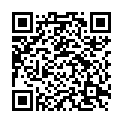|
|
|
| Module code: E2411 |
|
|
4V (4 hours per week) |
|
5 |
| Semester: 4 |
| Mandatory course: yes |
Language of instruction:
German |
Assessment:
Written exam
[updated 08.01.2020]
|
E2411 (P211-0091) Electrical Engineering and Information Technology, Bachelor, ASPO 01.10.2018
, semester 4, mandatory course, technical
|
60 class hours (= 45 clock hours) over a 15-week period.
The total student study time is 150 hours (equivalent to 5 ECTS credits).
There are therefore 105 hours available for class preparation and follow-up work and exam preparation.
|
Recommended prerequisites (modules):
None.
|
Recommended as prerequisite for:
|
Module coordinator:
N.N. |
Lecturer: N.N.
[updated 10.09.2018]
|
Learning outcomes:
This lecture is aimed at students specializing in Energy Systems. After successfully completing this course, students will be familiar with the basics of information technology that are relevant to their area of specialization. Students will be familiar with the advantages and disadvantages of common systems of telecommunications technology. They will be familiar with the many possibilities of wired and wireless communication technologies and be able to select and use a suitable technology for the control and monitoring of energy systems. Students will be familiar with the principle and techniques of cellular network construction in mobile communications. They will be able to distinguish between different system generations in mobile communications and explain their common features. Students will be familiar with the relevant standards for communication in energy networks. They will be able to apply these standards in order to ensure secure and reliable network operation. Students will be able to use IT security standards to establish a secure encrypted network connection.
[updated 08.01.2020]
|
Module content:
1. Signal classification 2. Frequency ranges, antennas, multiple access methods 3. Wired communication technologies 3.1 Analogue telephony (POTS), setting up a telephone connection line network 3.2 Digital telecommunication network (ISDN), services, network access, signaling, basic access, subscriber access interfaces 3.3 xDSL, ADSL, HDSL, VDSL, DSLAM 3.4 Passive optical networks, Ethernet and Gigabit PON, OLT, splitters, ONT 3.5 Copper lines, transmission characteristics, attenuation, crosstalk 3.6 Fiber optic cables, multi-mode fiber, single-mode fiber, DWDM technology, MUX, DEMUX, EDFA 3.7 Audio frequency ripple control, principle, transmitter, receiver, applications 3.8 Power Line Communication (PLC) 3.9 Ethernet, IEEE Standard 802.3 4. Wireless communication technologies 4.1 Mobile networks (1G, 2G (GSM), 2.5G, 3G (UMTS/HSDP), 4G (LTE/LTE-A) 4.2 Satellite communications, satellite orbits, satellite radio services, frequencies and bands, international satellite systems 4.3 WLAN, characteristics, network structure, IEEE standard 802.11, DSSS, planning WLANs 4.4 Bluetooth, IEEE Standard 802.15.1, FHSS, Pico and Scatternet 5. Network technology 5.1 OSI reference model 5.2 IP networks, protocol family TCP/IP, IPv4, IPv6 5.3 IEC 61850 Standard 6. IT security 6.1 Internet Protocol Security (IPsec) 6.2 MD5 and SHA hash functions
6.3. Wi-Fi Protected Access (WPA) 6.4. Virtual Private Network (VPN)
[updated 08.01.2020]
|
Teaching methods/Media:
Presentation with board and beamer during lecture
[updated 08.01.2020]
|
Recommended or required reading:
Badach, Anatol; Hoffman, Erwin: Technik der IP-Netze, Hanser, München, (latest edition) Benkner, Thorsten: Grundlagen des Mobilfunks, Schlembach, 2007, 1. Aufl., ISBN 978-3935340441 Bluschke, Andreas; Matthews, Michael: xDSL-Fibel, VDE, 2008 Dahlman, Eric; Parkvall, Stefan; Skold, Johan: 4G, LTE-Advanced Pro and the Road to 5G, Academic Press, 2016, ISBN 978-0128045756 Dodel, Hans: Satellitenfrequenzkoordinierung, Springer Vieweg, 2012, ISBN 978-3-642-29202-6 Dodel, Hans: Satellitenkommunikation, Springer, 2007, 2. Aufl., ISBN 978-3-540-29575-4 Freyer, Ulrich: Nachrichtenübertragungstechnik, Hanser, (latest edition) Gessler, Ralf; Krause, Thomas: Wireless-Netzwerke für den Nahbereich, Vieweg + Teubner, (latest edition) Jondral, Friedrich: Nachrichtensysteme, Schlembach, 2001 Korhonen, Juha: Introduction to 3G mobile communications, Artech House, 2003 Mertz, Andreas; Pollakowski, Martin: xDSL & Access networks, Prentice Hall, 2000 Obermann, Kristof; Horneffer, Martin: Datennetztechnologien für Next Generation Networks, Springer Vieweg, 2013, 2. Aufl., ISBN 978-3-8348-1384-8 Paessler, Ernst-Robert: Rundsteuertechnik, Publicis MCD, 1994 Sauter, Martin: Grundkurs Mobile Kommunikationssysteme, Springer Vieweg, (latest edition) Schwenk, Jörg: Sicherheit und Kryptographie im Internet, Vieweg, (latest edition), ISBN 978-3-658-06543-0 Siegmund, Gerd: Technik der Netze, Hüthig Werner, Martin: Nachrichtentechnik, Vieweg, (latest edition)
[updated 08.01.2020]
|


